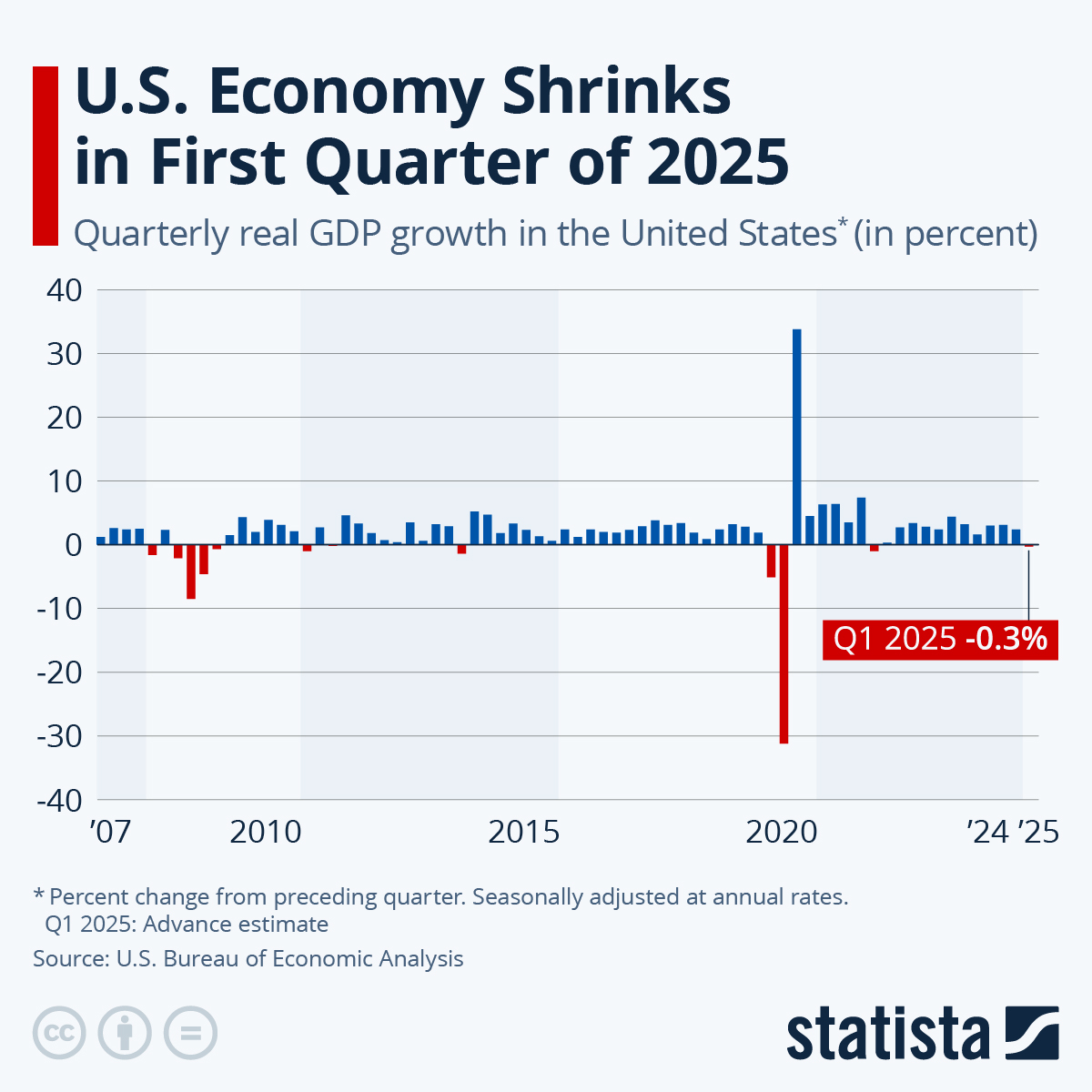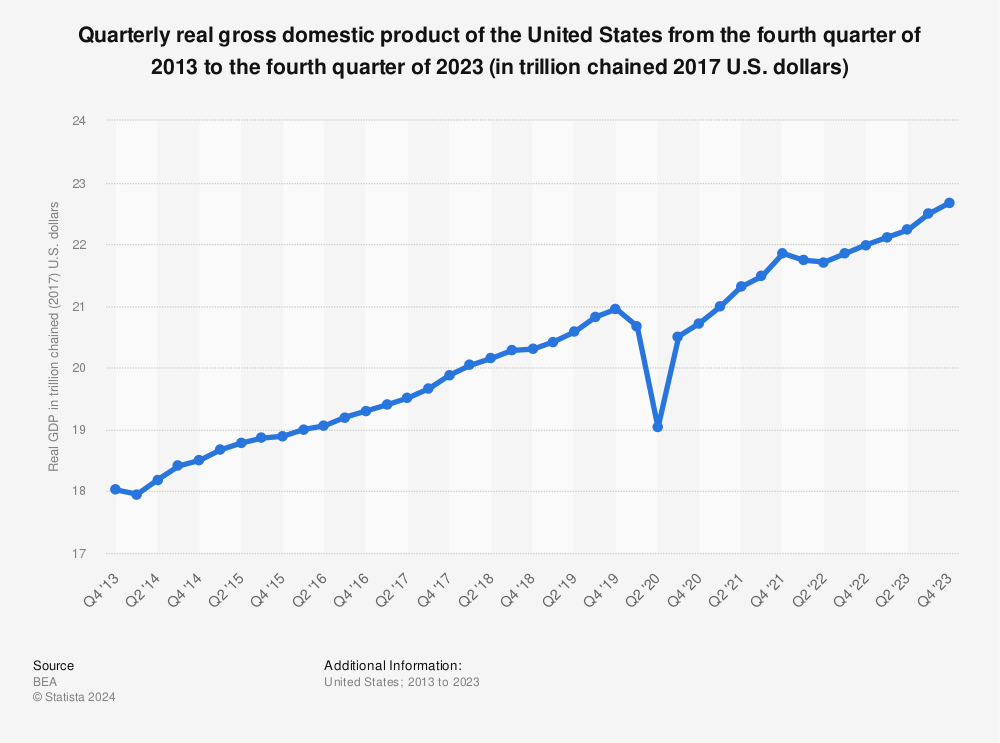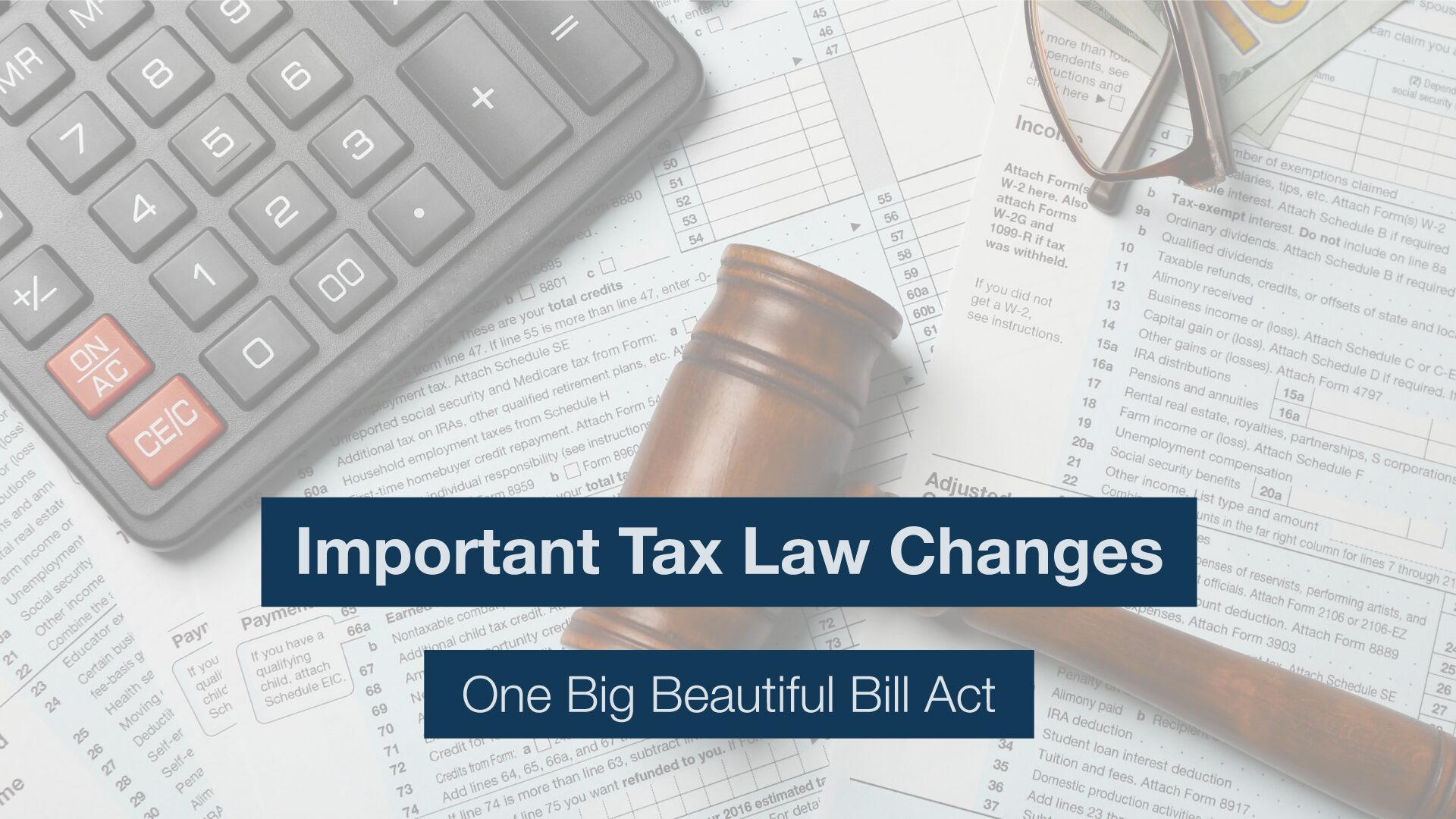Manipulating Data
“Not everything that can be counted counts, and not everything that counts can be counted.”
– Albert Einstein
The great part about data is it’s derived from facts and numbers. The bad part about presenting this data is the ease at which it can be manipulated to fit a narrative. Most recently, this can be seen in headlines about the United States’ second quarter Gross Domestic Product [GDP] decline.
- “U.S. economy contracted at fastest quarterly rate on record from April to June as coronavirus walloped workers, businesses”, The Washington Post
- “U.S. Economy Shrinks at Record 32.9% Pace in Second Quarter”, Bloomberg
- “U.S. economy plunges at titanic 32.9% rate in 2nd quarter and points to drawn-out recovery”, MarketWatch
What Really Happened?
GDP is defined as the monetary measure of the market value of all the final goods and services produced in a specific time.
So, did the production of goods in the U.S. really fall by one third ($1.6 trillion) from April through June? No
Did the U.S. economy still decline significantly during the second quarter, the most in recorded history? Yes
Then why the overstatement? The problem starts with how the GDP data is presented. Every quarter, the Federal Reserve calculates the total worth of the U.S. economy based on the goods and services produced (definition above). The FED then uses this value to compare to the previous quarter to find the gain or loss. Instead of leaving the value as a quarterly representation, they annualized it (quarterly change times four).
A more accurate headline could have read, “U.S. Economy Shrinks at Record 9.5% Pace in Second Quarter.” In the simplest terms, the Federal Reserve takes the quarterly GDP and compounds it for the rest of the year to come to an annual estimate IF the economy continued contracting by the same quarterly amount.
This has created a real problem with data manipulation as many pundits misrepresent the information. For example, one person stated the economy fell “a staggering 32.9 percent. Put another way, we’ve lost a third of the value of goods and services produced by our mighty country.” This was best countered by the Washington Post, explaining “A 32.9 percent drop would mean a loss of about $1.6 trillion from last quarter. In fact, the economy shrank $0.45 trillion in the second quarter, on the heels of a $0.06 trillion (1.3 percent) decrease in the first quarter of 2020.”
Have a Healthy Skepticism
This isn’t to say everyone is lying or intentionally misrepresenting data. In many cases, information may be presented in an intentionally misleading way to better fit their desired narrative. While it’s important to stay informed, we should be mindful to regard headlines with a bit of skepticism bearing in mind our time-tested belief that “today’s headlines and tomorrow’s reality are seldom the same.”
“Learn from yesterday, live for today, hope for tomorrow. The important thing is not to stop questioning.”
– Albert Einstein
Please remember that past performance may not be indicative of future results. Different types of investments involve varying degrees of risk, and there can be no assurance that any specific investment, strategy, or product or any non-investment related content, made reference to directly or indirectly in this newsletter, will be suitable for your individual situation, or prove successful. This material is distributed by PDS Planning, Inc. and is for information purposes only. Although information has been obtained from and is based upon sources PDS Planning believes to be reliable, we do not guarantee its accuracy. It is provided with the understanding that no fiduciary relationship exists because of this report. Opinions expressed in this report are not necessarily the opinions of PDS Planning and are subject to change without notice. PDS Planning assumes no liability for the interpretation or use of this report. Consultation with a qualified investment advisor is recommended prior to executing any investment strategy. No portion of this publication should be construed as legal or accounting advice. If you are a client of PDS Planning, please remember to contact PDS Planning, Inc., in writing, if there are any changes in your personal/financial situation or investment objectives. All rights reserved.





